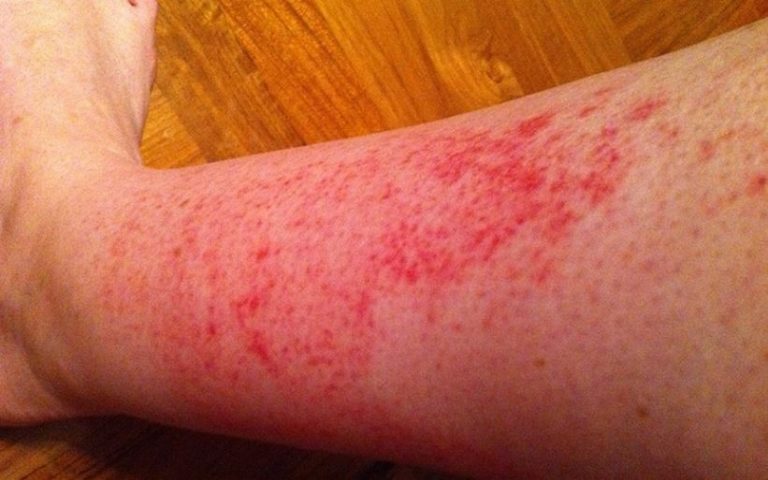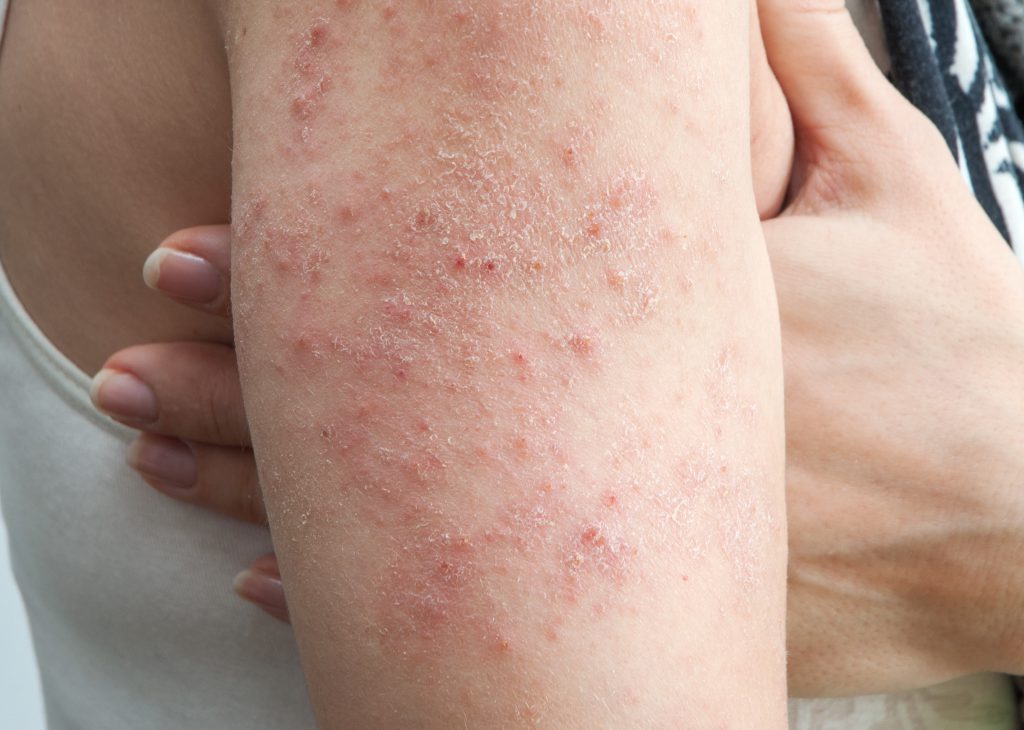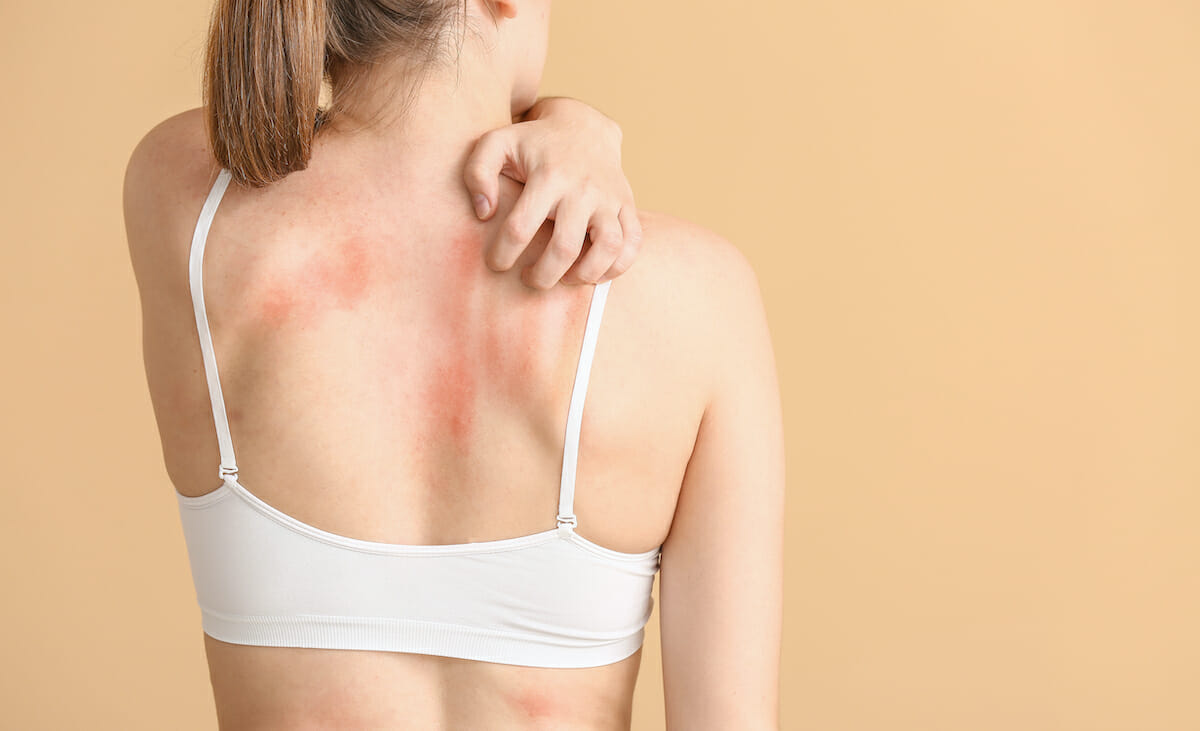Understanding the Phenomenon: Post-Shower Leg Itching
Post-shower leg itching is a common occurrence that affects many individuals, often leaving them puzzled about its causes and potential solutions. This sensation, which can range from mild to intense, typically manifests as an irresistible urge to scratch the skin on the legs following a bath or shower. While the experience can be uncomfortable, understanding the underlying reasons for this phenomenon is crucial in finding suitable relief measures.
Shower-Related Factors That May Contribute to Itching
Hot water, extended showering, and the use of harsh soaps and shampoos can strip the skin of its natural oils, leading to dryness and the sensation of itchy legs after a shower. Maintaining appropriate water temperature and using mild, moisturizing products can help alleviate this issue.
Hot water, while soothing, can cause the skin’s blood vessels to dilate, leading to increased skin sensitivity and itching. To prevent this, consider using lukewarm water during showers and baths. Additionally, limiting shower time can help maintain the skin’s natural moisture barrier, reducing the likelihood of post-shower itching.
Many soaps and shampoos contain chemicals and fragrances that can irritate the skin, causing dryness and itching. Opt for mild, hypoallergenic products that are specifically formulated for sensitive skin. These products typically contain fewer harsh chemicals and more moisturizing ingredients, which can help soothe and protect the skin.
Skin Conditions That Can Cause Post-Shower Itching
Certain pre-existing skin conditions, such as eczema, psoriasis, and dermatitis, can be exacerbated by showering, leading to itchy legs after a shower. These conditions affect the skin’s ability to maintain proper moisture levels, making it more susceptible to irritation and inflammation.
Eczema
Eczema, also known as atopic dermatitis, is a chronic skin condition characterized by dry, scaly, and itchy patches. Showering can strip the skin of its natural oils, further aggravating eczema symptoms. To alleviate post-shower itching, consider using a gentle, fragrance-free moisturizer and avoiding harsh soaps and detergents.
Psoriasis
Psoriasis is an autoimmune skin condition that results in red, scaly, and itchy patches. Hot water and prolonged showering can trigger psoriasis symptoms, causing the skin to become more inflamed and itchy. To minimize post-shower itching, use lukewarm water, limit shower time, and apply a moisturizer specifically formulated for psoriasis.
Dermatitis
Dermatitis is a general term for inflammation of the skin, which can result in redness, swelling, and itching. Contact dermatitis, for example, occurs when the skin comes into contact with an allergen or irritant. Showering can exacerbate dermatitis symptoms, making it essential to use gentle, fragrfree products and maintain appropriate water temperature.
If you suspect you have a skin condition or are experiencing severe symptoms, consult a healthcare professional or dermatologist for a proper diagnosis and treatment plan.
How Allergies May Play a Role in Post-Shower Itching
Allergic reactions to laundry detergent, fabric softeners, or bath towels can cause itching after a shower. These allergies can manifest as contact dermatitis, a skin reaction that results from direct contact with an allergen. To alleviate post-shower itching caused by allergies, consider using hypoallergenic products and taking specific precautions when washing towels and clothing.
Using Hypoallergenic Products
Switching to hypoallergenic laundry detergent and fabric softeners can help reduce the likelihood of an allergic reaction. These products are specially formulated for sensitive skin and contain fewer harsh chemicals and fragrances that can irritate the skin. Additionally, opt for hypoallergenic bath towels made from natural fibers, such as cotton or bamboo, to minimize the risk of allergic reactions.
Washing Towels Separately with Sensitive Detergent
Washing towels separately with a sensitive detergent can help prevent cross-contamination with other laundry items that may contain allergens. Using a separate washing cycle for towels also ensures that they are thoroughly cleaned and rinsed, reducing the risk of allergic reactions when using them after a shower.
If you suspect that allergies may be causing your post-shower leg itching, consider implementing these changes and monitoring your symptoms. If the itching persists, worsens, or is accompanied by other symptoms, consult a healthcare professional for further evaluation and treatment.
Environmental Factors That Can Trigger Itching
Low humidity levels, dry air, and heating systems can contribute to post-shower leg itching. These environmental factors can exacerbate dry skin, making it essential to maintain proper hydration and moisture levels to alleviate itching.
Low Humidity Levels
Low humidity levels, particularly during colder months, can cause the skin to become dry and itchy. To combat this, consider using a humidifier in your living space to add moisture to the air. This can help soothe dry skin and reduce the likelihood of post-shower itching.
Dry Air
Dry air, whether caused by climate or indoor heating systems, can strip the skin of its natural oils, leading to dryness and itching. To counteract this, use a moisturizer immediately after showering to lock in hydration and protect the skin from dryness. Opt for a moisturizer that contains ingredients such as shea butter, glycerin, or hyaluronic acid, which can help replenish the skin’s moisture barrier.
Heating Systems
Central heating and space heaters can further dry out the air, contributing to post-shower leg itching. To minimize the impact of heating systems, try lowering the thermostat and using a humidifier to maintain a comfortable humidity level in your living space. Additionally, consider wearing moisture-wicking clothing and fabrics to help keep the skin hydrated and reduce irritation.
By addressing these environmental factors, you can help alleviate post-shower leg itching and maintain healthy, hydrated skin.
Home Remedies and Lifestyle Changes to Alleviate Itching
Implementing home remedies and adopting lifestyle changes can help alleviate post-shower leg itching. By focusing on proper skin care and hydration, you can minimize the likelihood of experiencing this issue and maintain healthy, comfortable skin.
Applying Moisturizer
Applying a moisturizer immediately after showering can help lock in hydration and protect the skin from dryness. Opt for a moisturizer that contains ingredients such as shea butter, glycerin, or hyaluronic acid, which can help replenish the skin’s moisture barrier. Additionally, consider using a moisturizer that contains soothing ingredients, such as oatmeal or chamomile, to help alleviate itching.
Taking Cool Showers
Hot water can strip the skin of its natural oils, leading to dryness and itching. To minimize this effect, consider taking cooler showers or baths. Cooler water is less likely to strip the skin of its natural oils and can help soothe irritated skin.
Patting the Skin Dry Instead of Rubbing
Rubbing the skin with a towel after showering can cause irritation and exacerbate itching. Instead, gently pat the skin dry with a soft towel to help maintain the skin’s moisture barrier and reduce irritation.
Proper Skin Care and Hydration
Maintaining a consistent skincare routine and focusing on proper hydration can help alleviate post-shower leg itching. Ensure that you are drinking enough water throughout the day, and consider incorporating hydrating foods, such as fruits and vegetables, into your diet. Additionally, avoid using harsh soaps and detergents, and opt for mild, fragrance-free products that are specifically formulated for sensitive skin.
By following these home remedies and lifestyle changes, you can help alleviate post-shower leg itching and maintain healthy, comfortable skin.
When to Consult a Healthcare Professional
If post-shower leg itching persists, worsens, or is accompanied by other symptoms, it is essential to consult a healthcare professional. A dermatologist can provide a proper diagnosis and treatment plan to address the underlying cause of the itching and help alleviate discomfort.
In some cases, post-shower leg itching may be a symptom of an underlying medical condition, such as kidney disease or diabetes. If you are experiencing chronic itching, along with other symptoms such as fatigue, changes in urination, or unexplained weight loss, it is crucial to seek medical advice. A healthcare professional can perform a thorough evaluation and determine the appropriate course of action to address your symptoms.
Additionally, if you suspect that your post-shower leg itching is caused by an allergic reaction, a healthcare professional can help identify the allergen and recommend appropriate treatment options. This may include avoiding the allergen, using hypoallergenic products, or taking medications to alleviate symptoms.
By consulting a healthcare professional, you can ensure that you receive the proper diagnosis and treatment for your post-shower leg itching, helping you maintain healthy, comfortable skin.
Preventing Future Occurrences of Post-Shower Itching
To prevent future occurrences of post-shower leg itching, it is essential to maintain a consistent skincare routine and monitor your symptoms. By addressing the underlying causes of itching, you can help ensure that your skin remains healthy, comfortable, and itch-free.
Maintaining a Consistent Skincare Routine
Establishing a consistent skincare routine can help alleviate post-shower leg itching and maintain healthy skin. This may include using mild, moisturizing products, taking cooler showers, and patting the skin dry instead of rubbing. Additionally, consider incorporating products that contain soothing ingredients, such as oatmeal or chamomile, to help reduce inflammation and alleviate itching.
Monitoring Your Symptoms
Paying close attention to your symptoms can help you identify potential triggers and take appropriate action to prevent future occurrences of post-shower leg itching. Keep a journal of your symptoms, noting any patterns or trends that may emerge. This can help you determine if certain products, activities, or environmental factors are contributing to your itching and allow you to make informed decisions about how to address the issue.
Addressing Underlying Causes
If you suspect that an underlying medical condition, such as eczema, psoriasis, or an allergy, may be contributing to your post-shower leg itching, it is essential to seek medical advice. A healthcare professional can provide a proper diagnosis and treatment plan to address the root cause of the itching and help you maintain healthy, comfortable skin.
By following these tips and maintaining a consistent skincare routine, you can help prevent future occurrences of post-shower leg itching and enjoy healthy, itch-free skin.









